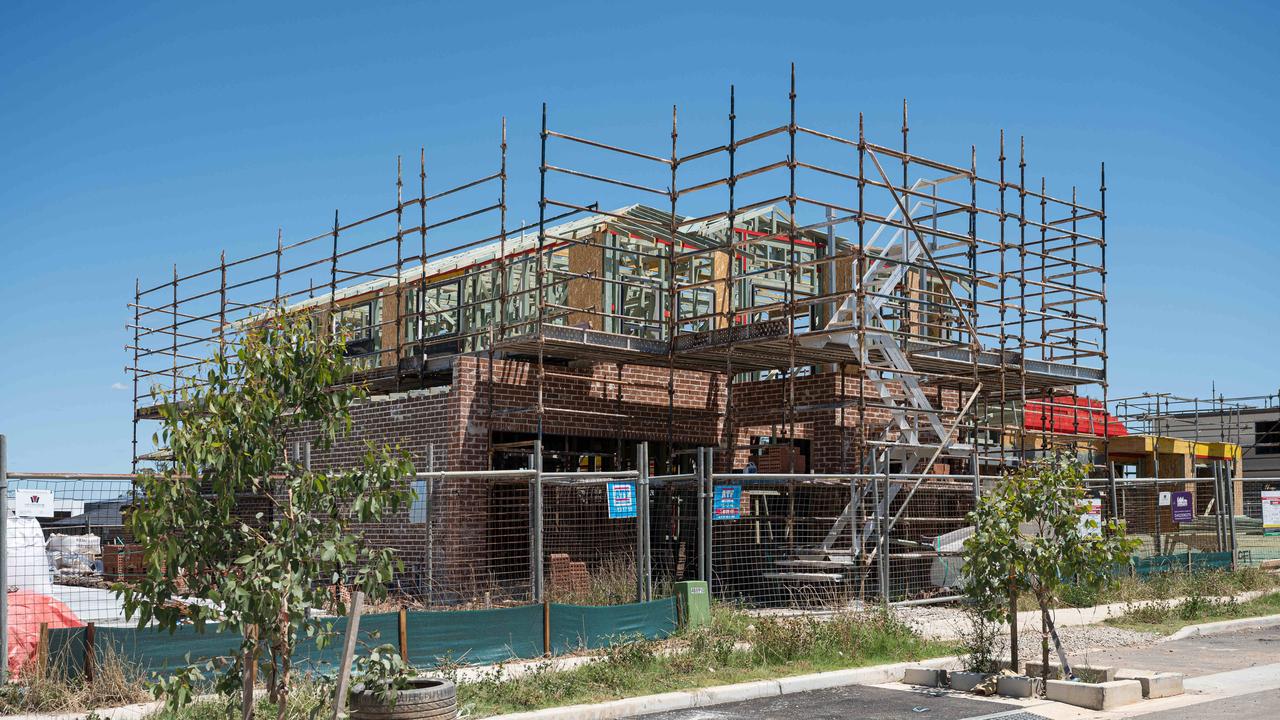Why 2022 is a bad time to ignore your tax bill as ATO targets debts
More than a million people will find out if they owe the ATO money over coming weeks. SEE LIST OF HOTSPOTS

Business
Don't miss out on the headlines from Business. Followed categories will be added to My News.
More than a million Aussies are about to be hit with a tax bill, and experts are warning now is not the time to ignore the debt.
The Australian Taxation Office’s temporary pause on pursuing debt during the pandemic has ended, and they are cracking down to recoup some of the $34 billion-plus that they are owed.
With tax debt interest rates at 8 per cent – twice that of a typical home loan – tax lawyer and former tax office director Tania Waterhouse said people who ignored their debts could end up bankrupt or paying back double.

News Corp Australia analysis of postcode data reveals the hot spots where taxpayers are locked in litigation with the ATO - in Western Sydney, Cairns and the outer suburbs of Melbourne. Most litigation relates to tax debts.
Ms Waterhouse said most of her clients were small business owners and tradies who were doing it tough – and all were male.
“I have no female clients, it’s males that put their heads in the sand,” the Waterhouse Lawyers partner said.
“One of the big issues is that tax debt can double.
“The principal debt may be $100,000 but with general interest charged (GIC) the taxpayer (may have) to find the means to pay $200,000.”
GIC is currently at 8 per cent a year – more than twice the average home loan rate.
With this level of interest, a $100,000 debt ignored for nine years becomes $200,000 – and any legal costs are added on top of that.
“They are horrific interest rates … and banks will not loan money for the sole purpose of paying a tax debt,” Ms Waterhouse said.

Latest figures show the tax office was chasing $34.1 billion of debt in the 2019-20 financial year.
This has likely increased since as the tax office more actively pursues debt recovery after backing off during pandemic lockdowns.
“The ATO is now taking firmer action with tax debt,” Ms Waterhouse said.
“(For some small business owners,) instead of taking formal tax recovery proceedings in the court against the company, they are issuing DPNs (director penalty notices), which are issued to the director or directors of the company.
“They are personally liable.
“If they have got a $300,000 tax debt, which is not unusual, and no assets and they are earning under $70,000, they are better off going bankrupt and trying to start again.”
Ms Waterhouse said she could object to a tax debt on behalf of a client if they disputed the amount, but more often her role was to engage the tax office and organise a payment plan.
“The reason for early engagement is to start paying off the tax debt and stop these general interest charges and possible penalties for shortfall,” she said.
Tax office deputy commissioner Vivek Chaudhary said the agency could tailor a solution to a taxpayer’s unique circumstances.
“What is critical is that taxpayers or their representatives talk to us and respond to our calls,” he said.
Latest tax office statistics reveal more than 19,800 Australians claimed tax deductions for litigation costs associated with managing their tax affairs in the 2018-19 financial year.
They claimed a total of $21.84 million that was subtracted from their assessable incomes, meaning a portion was refunded by the government and therefore covered by taxpayers.
About $1.3 million of this was claimed by five people in NSW’s Chippendale/Darlington/Golden Grove area alone – an average of $266,656 each.
The most litigious postcode in the country, however, was 2170 in Western Sydney (including Liverpool, Moorebank, Casula) where 245 people claimed a deduction for legal costs.
It was followed by Queensland’s 4870 (Cairns and surrounding suburbs) with 219 people making claims, and Victoria’s 3029 (Hopper’s Crossing, Tarneit, Truganina) with 211.
H & R Block director of tax communications Mark Chapman said taxpayers could claim deductions for legal fees and appeal applications but not for ATO-issued penalties, interest payments for tax debts or any associated borrowing costs.

Deductions could also be claimed for costs related to the preparation of an income tax return, business activity statement (BAS) or Instalment Activity Statement (IAS).
“(This) could include the cost of travelling to a recognised tax adviser for this purpose and other incidental costs such as the cost of accommodation, meals, taxi fares and travel insurance,” he said.
He said deductions could also be claimed for the cost of obtaining tax advice, lodging a return electronically, attending to an ATO audit, preparing a financial statement to support an application for an extension of time to pay tax, obtaining an exchange rate or attending a tax return preparation course, such as H & R Block’s income tax course.




